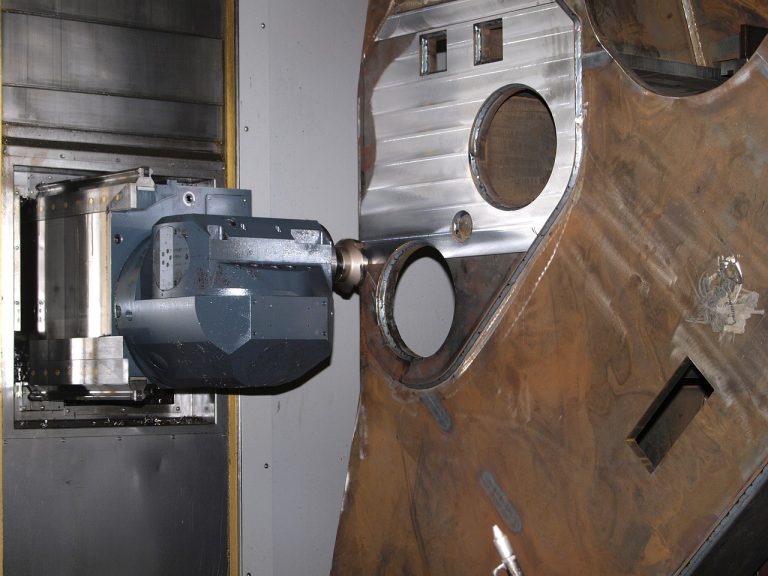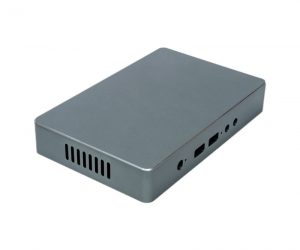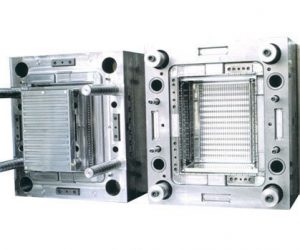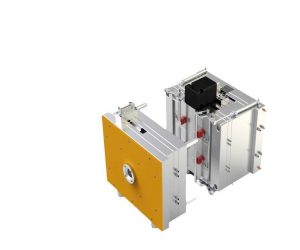CNC (Computer Numerical Control) machining is a game-changer for companies looking to create precision parts. It uses computer-controlled machines to shape and manufacture components with high accuracy and consistency. Let’s dive into the pros and cons of CNC machining, and explore why it’s so popular in modern manufacturing.
Advantages of CNC Machining
1. Precision and Consistency:
One of the biggest advantages of CNC machining is the high level of precision it offers. Thanks to computer control, machines can handle the positioning and speed of tools with incredible accuracy. This ensures that each part is made to the exact specifications every time, which is crucial for maintaining quality across large production runs.
2. Automation and Efficiency:
Unlike traditional manual machining, CNC machines can operate automatically once they’re programmed. This means companies can significantly cut down on labor costs and reduce human error. Plus, CNC machines can complete complex tasks, including multi-axis operations, all in a single setup. This cuts down on setup time and boosts productivity.
3. Flexibility and Repeatability:
CNC machining offers great flexibility. Companies can easily adjust the program to accommodate different designs or product requirements. Whether you need a one-off custom part or a batch of identical components, CNC machines can handle both with equal precision. It also ensures that the same part can be reproduced exactly the same way each time, making it easier to maintain consistency across production runs.
Disadvantages of CNC Machining
1. High Initial Cost:
On the downside, CNC machines are expensive. The upfront cost of purchasing the equipment, as well as ongoing maintenance, can be quite high, which may be a challenge for smaller businesses.
2. Need for Skilled Operators:
Although CNC machines are automated, they still require skilled operators to set up, program, and maintain them. This means businesses need to invest in training or hire specialized personnel, which adds to operational costs.
3. Environmental Considerations:
CNC machining also produces waste, such as scrap material and cutting fluids. Companies need to manage and dispose of this waste properly, which requires investment in waste management systems and can add to the environmental impact of the process.
Conclusion
In conclusion, CNC machining technology brings a lot of benefits—precision, automation, flexibility, and repeatability. However, the high cost and technical demands can be a challenge for some businesses. When deciding whether to invest in CNC machining, companies should weigh the advantages against the costs and assess whether it fits their specific needs. Overall, CNC machining is a powerful tool for businesses looking to produce high-quality parts efficiently, but it requires careful planning and investment.
CNC machining offers a range of benefits that make it an attractive option for businesses looking to produce high-quality parts efficiently. Here’s a breakdown of its main advantages and a look at a few of its downsides.
Advantages of CNC Machining
1. Precision and Accuracy:
CNC machines are known for their exceptional precision. The computer-controlled systems eliminate human error, ensuring that parts are made with high accuracy. This is especially important for industries that require intricate designs, like aerospace or medical devices, where tight tolerances are crucial.
2. Versatility:
CNC machines can work with various materials—metals, plastics, composites, and even exotic materials. Whether you’re dealing with aluminum, stainless steel, or more complex substances, CNC machines can handle it. This versatility makes them ideal for a wide range of industries, from automotive to medical.
3. Automation:
Once a CNC machine is programmed, it can run on its own, requiring little human intervention. This reduces labor costs and saves time, making the production process more efficient. Automation also helps companies scale their operations and improve consistency, as the same process is repeated exactly every time.
4. Fast Production and Prototyping:
CNC machining speeds up production. Thanks to the quick setup, high-speed operation, and precision, businesses can rapidly produce prototypes and even full production runs. This leads to faster time-to-market, giving companies an edge over competitors by quickly meeting customer demands.
Disadvantages of CNC Machining
1. High Initial Investment:
The cost of purchasing and setting up CNC machines can be quite high. This initial investment is a significant consideration, especially for smaller companies. On top of that, ongoing maintenance costs and operator training can add up.
2. Complexity of Setup and Maintenance:
CNC machines require skilled operators for setup, programming, and maintenance. This means businesses need to invest in training or hire experienced personnel. Without the right knowledge, machines may not perform at their full potential, which could impact overall efficiency.
In summary, CNC machining offers precision, versatility, and efficiency, making it an excellent choice for producing high-quality parts in various industries. It also allows for fast prototyping and scaling production. However, the high initial costs and ongoing maintenance can be a barrier for some businesses. For those who can afford the investment, though, CNC machining is a powerful tool that can greatly enhance production processes and drive long-term success.
Precision and Accuracy in Production
In today's highly competitive business world, precision and accuracy in production are critical for achieving success. CNC machining parts offer a significant advantage over traditional manufacturing methods by providing exceptional precision and accuracy in the production process. This is because CNC machines utilize computer programming to control the machinery's movements, ensuring that each part is produced with remarkable consistency.
One of the primary benefits of using CNC machining parts for your business is that they allow you to produce high-quality products consistently. When working with traditional manufacturing methods, there is always a risk of human error or inconsistencies in the final product due to variations in operator skill levels and other factors. However, with CNC machines handling all aspects of production, you can be confident that each part will be manufactured precisely as designed every time.
Another advantage of utilizing CNC machining parts for your business lies in their ability to produce complex shapes accurately. Traditional manufacturing methods often struggle when it comes to producing intricate designs since they require multiple steps and adjustments from skilled operators who must work carefully to avoid damaging delicate components or materials during fabrication.
CNC machines eliminate these issues by allowing manufacturers to program precise instructions into the machine software ahead of time. This means that even complicated geometries can be produced quickly and efficiently without risking damage or errors occurring along the way.
Furthermore, using CNC machining parts also provides businesses with greater flexibility when it comes to customization options. Since these machines are programmed based on CAD models rather than physical templates or molds, it's much easier to make changes mid-production if needed. This makes it possible for businesses to adapt quickly as market demands shift or new opportunities arise while still maintaining consistent quality standards throughout their entire product line.
Overall, when considering which manufacturing method best suits your business needs, choosing CNC machining parts offers numerous advantages such as improved precision and accuracy during production processes resulting in higher quality output rates compared with traditional techniques which may lead more inconsistent results due human errors like those mentioned above - making this technology an excellent investment for any company looking to stay competitive in today's marketplace.
Faster Turnaround Times and Increased Productivity
CNC machining parts are known for their ability to provide faster turnaround times and increased productivity, which can significantly benefit businesses. With CNC machines, the entire production process is automated, which means that there is no need for manual intervention in any of the manufacturing processes. As a result, there are fewer chances of errors or mistakes occurring during production. This not only leads to improved quality but also saves time as well.
In traditional manufacturing methods, operators have to set up and operate each machine separately. This can be a time-consuming task that requires significant skill and knowledge on the part of the operator. However, with CNC machines, all setup procedures are completed by computer programming which eliminates much of this work-loads from human operators.
Moreover, CNC machining parts offer high precision results every single time they run a program; therefore allowing manufacturers to produce more accurate products at greater speeds than ever before possible through traditional machining techniques.
This increased speed does not just come from eliminating human error or reducing setup times alone though; it’s also due to other factors such as advanced cutting tools used in conjunction with these machines that allow them to cut materials quickly without sacrificing accuracy or quality standards leading ultimately towards enhanced efficiency within industries using these systems too!
Overall, investing in CNC machining parts for your business can help increase productivity rates while keeping costs low – something every company strives for when looking into new technologies like this one!
Customization Options for Unique Parts
CNC machining parts offer businesses a wide range of customization options that can benefit those needing unique parts. With the ability to program CNC machines to create complex shapes and designs, businesses can achieve high precision and accuracy in their custom-made components.
One of the main advantages of CNC machining is its flexibility when it comes to producing customized parts. Companies can easily modify or adjust designs as per their specific requirements, without having to invest in new tools or machinery. This means that even small-scale manufacturers can produce unique components for their products without worrying about prohibitive costs.
Moreover, with CNC machining, companies have access to a vast array of materials ranging from metals like aluminum and steel to plastics such as nylon and polycarbonate. Businesses no longer need to compromise on material selection due to manufacturing constraints since they have the freedom to choose from an extensive range of options based on performance requirements, cost-effectiveness and aesthetics.
Another advantage is that CNC machining eliminates human errors – something which is common during manual production processes. The use of automated equipment ensures consistent quality across all produced components irrespective of batch size or complexity level. This makes it ideal for manufacturing critical components used in industries such as aerospace where even minor mistakes could lead significant failures.
Additionally, by using sophisticated software programs capable of creating three-dimensional models (CAD), designers now have more control over how intricate details are incorporated into their designs resulting in more precise outcomes than previously possible through conventional methods.
The increased design freedom combined with advanced fabrication technology allows companies not only greater flexibility but also faster turnaround times for custom orders than traditional subtractive methods like milling or drilling.
Cost-Effective Production with High-Quality Results
CNC machining stands out as a cost-effective solution for businesses looking to produce high-quality parts while keeping costs in check. Here’s how it delivers on both fronts.
Efficiency and Reduced Waste
CNC machining helps businesses save money by cutting down on production time and minimizing material waste. Using computer-aided design (CAD) software, CNC machines can produce parts with pinpoint accuracy, reducing errors that lead to scrap. This means businesses get more usable parts from the same amount of material, lowering production costs and boosting efficiency.
High-Quality and Consistent Output
CNC machines deliver consistent, high-quality results with every part they produce. Thanks to their precision, these machines can create complex designs and geometries that are often impossible to achieve with manual methods or traditional machinery. This consistency not only satisfies customers but also ensures the company’s reputation for quality. No matter how many parts are produced, each will meet the same high standards.
Competitive Edge in the Market
The cost-effectiveness and high-quality results of CNC machining also give businesses a competitive advantage. With this technology, companies can produce better quality products at more competitive prices. It also allows them to quickly adapt to changing market trends or customer needs, without compromising on quality or delivery times. This flexibility is key in industries where innovation and speed are critical.
Automation and Increased Productivity
Automation is another key factor in the cost savings provided by CNC machining. With automated systems, machines can run continuously, even outside of regular work hours. This increases productivity without the need for additional labor costs, something traditional methods can't match. More work can be done in less time, leading to higher output at lower costs.
Overall, CNC machining offers a winning combination of cost-effectiveness and high-quality output. It enables businesses to produce precise, intricate parts while minimizing waste and labor costs. Industries like aerospace, automotive, and manufacturing, where precision is key, can especially benefit from CNC machining’s capabilities. It provides a cost-efficient alternative to traditional manufacturing methods while still delivering top-tier components that meet the high standards of today’s competitive marketplace.
.
Access to Advanced Technology and Equipment
CNC machining parts offer businesses the ability to access advanced technology and equipment that can greatly benefit their operations. With CNC machining, companies can produce high-quality products with greater precision than ever before. This is due to the fact that CNC machines are capable of performing highly complex tasks with ease, allowing for a higher level of accuracy in production processes.
One major advantage of using CNC machines is their ability to work with a variety of materials including metal, plastics, and wood. This flexibility means that businesses have more options when it comes to choosing the materials they want to use in their products or components. Additionally, because these machines are programmable, they allow companies to easily switch between different projects without having to retool or make significant changes.
Another key advantage of CNC machining parts is the speed at which they can operate. These machines are incredibly fast and efficient which means that businesses can complete large orders quickly and efficiently. This not only saves time but also reduces costs associated with labor since fewer workers are needed on the production floor.
In addition to being fast and precise, CNC machines also offer a high degree of automation which further increases efficiency in manufacturing processes. By automating certain aspects of production such as tool changing or material handling, companies can reduce errors and improve overall quality control measures.
Overall, access to advanced technology and equipment through CNC machining provides numerous benefits for businesses looking for ways to increase productivity while reducing costs associated with manual labor-intensive tasks. From increased precision in manufacturing processes thanks in part due its computerized programing capabilities used by skilled programmers who specialize on writing codes specifically designed from industrial application needs up until its capability on operating 24/7 non-stop operation makes it possible for business owners' peace-of-mind knowing they'll have consistent output regardless if there's an assigned operator physically present or not - this innovative solution has proven itself valuable time after time across various industries worldwide making it one reliable investment worth taking into consideration towards your business' growth and success.
Conclusion
In conclusion, CNC machining parts provide numerous advantages for businesses. With the precision and accuracy of these machines, companies can produce high-quality parts at a faster rate than traditional methods. Additionally, the automation capabilities of CNC machines allow for increased productivity and cost-effectiveness in manufacturing processes. Furthermore, the ability to easily replicate designs ensures consistency in production and reduces errors. Overall, implementing CNC machining technology can greatly benefit businesses looking to improve their manufacturing processes and increase efficiency.



